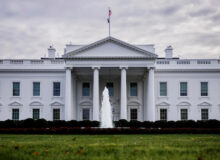This one came from my friend Jazz Shaw at Hot Air:
Another one of those “clean out the basket” stories from while I was away comes to us from the hallowed ground of Arlington National Cemetery. There was a quiet change made to the guidelines for interment there roughly one year ago which impacts a small but rightfully vocal group of citizens and their families. It involves the few remaining members of the Women Airforce Service Pilots (or WASPs) from World War II. It seems that the Army is no longer accepting the remains of the female pilots for burial alongside the Honored Dead who rest there. (Fox News)
“The ashes of World War II veteran Elaine Harmon are sitting in a closet in her daughter’s home, where they will remain until they can go to what her family says is her rightful resting place: Arlington National Cemetery.
Harmon piloted aircraft in World War II under a special program, Women Airforce Service Pilots, that flew noncombat missions to free up male pilots for combat. Granted veteran status in 1977, the WASPs have been eligible to have their ashes placed at Arlington with military honors since 2002.
But earlier this year, then-Secretary of the Army John McHugh reversed course and ruled WASPs ineligible.”
After Harmon died in April at age 95, her daughter, Terry Harmon, 69, of Silver Spring, Maryland, was dismayed to learn that the Army had moved to exclude WASPs. She said her mother had helped lead the effort to gain recognition for WASPs.
The WASPs were employed to fly military aircraft under the direction of the United States Army Air Forces during World War II. The 1,074 female pilots of the WASPs each freed up a male pilot for combat service. Wasps flew over 60 million miles in every type of military aircraft. The WASPs were granted veteran status in 1977, and given the Congressional Gold Medal in 2009 (the picture at the tip of this post is Elaine Harmon at the Congressional Gold Medal ceremony).
But the WASPs are only part of the problem, according to Army Secretary McHugh’s memo discussing his decision, Army lawyers took a look at the rules and determined that all “World War II veterans classified as “active duty designees” are not eligible for inurnment — placement of their urns in an above-ground structure at Arlington. The largest group affected by the memo is actually the Merchant Marine, nearly 250,000 of whose members served during World War II.”
Which means that Jazz is correct when he said the decision didn’t result from a hatred of women, “More likely, he was examining the quickly diminishing available space for burials at Arlington and making a ham handed attempt at finding ways to make the land stretch further”
Arlington Cemetery is running out of space, right now there is a project that will add close to 30,000 interment sites on a 27-acre expansion on the north side of the grounds. It will add to the life of Arlington Cemetery but it wont stop the cemetery from eventually running out of land to bury America’s heroes.
The are searching for more land but the problem is “how to find more space to dig while preserving old-growth forests?”
To balance preserving trees as old as the Civil War and making room, the cemetery and the National Park Service, which manages part of the grounds, have had to consider the impact on trees. Specifically, the white oaks, chestnut oaks, hickory and eastern red cedar trees. Some of the oldest trees there are 250 years old.
Of the 8,500 native and exotic trees blooming on the grounds, an environmental impact study for the Millennium Project has focused on the Arlington Woods, which contains some trees that were around in 1779. The particularly old trees, the Park Service promises, won’t be removed.
Back in June of 2015 a Louisiana National Guardsman who was killed in a helicopter crash in the Gulf of Mexico was denied burial at Arlington because he was killed during a training exercise. The burial plots are only for service members who die on active duty and space is limited, the cemetery said.
The real issue has nothing to do with women, its all about land, and how to find more of it. Internment at Arlington is a special honor and it seems to me that to extend the life of the cemetery, rather than coming up with ways to limit eligibility barring deserving heroes from being buried at Arlington, the Secretary of the Army should be figuring out ways to gain more land and expand the cemetery. Nothing should be impossible when finding land to honor people who sacrificed themselves to keep us free.






